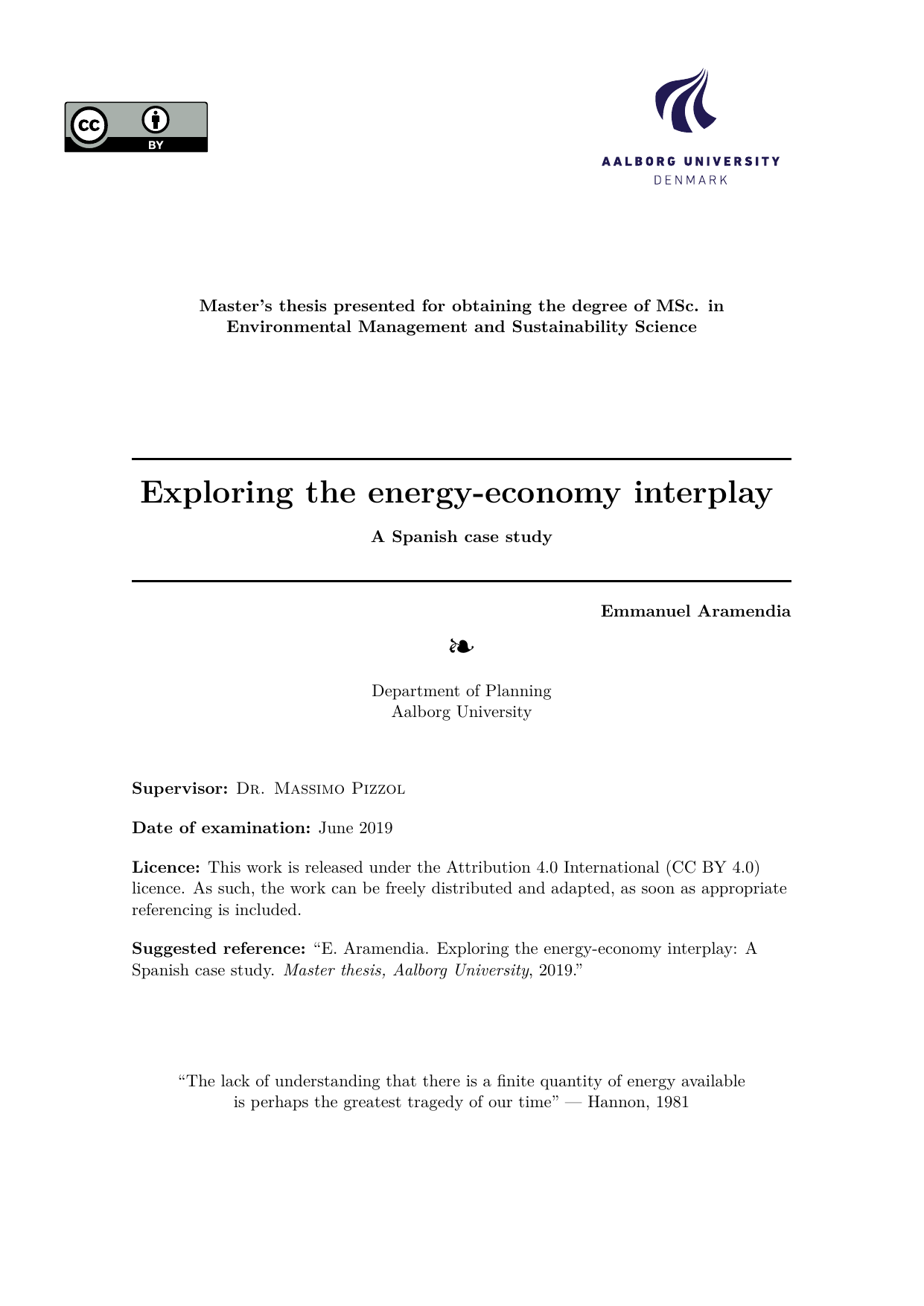
Exploring the energy-economy interplay: A Spanish case study
Author
Term
4. Term
Publication year
2019
Submitted on
2019-06-06
Abstract
Economic growth is the current economic paradigm, as it is usually thought that further growth is desirable and will bring about greater wealth. However, economic growth has been historically tightly correlated to energy consumption. It is argued that two impending constraints are likely to limit future energy consumption. Firstly, climate change, which is triggered to a large extent by energy consumption. Secondly, fossil fuel depletion, and particularly the imminent peak oil, which is likely to limit the physical availability of energy. As such, further research in order to understand energy-economy interactions is needed. In this master thesis, the useful exergy concept — as the energy metric closest to energy services — is combined with three different approaches in order to contribute to this strand of research. Firstly, Granger causality tests are conducted between energy consumption and GDP growth rates. Secondly, Aggregate Production Functions (APFs) are used in order to explore how energy consumption can account for economic output (GDP). Finally, a conceptual energy-economy model that makes explicit the underlying mechanisms of the energy-economy interactions is presented. As results obtained with mainstream approaches — i.e. Granger causality tests and APF modelling — are found to be extremely sensitive to arbitrary modelling choices, it is suggested that further research should focus on energy-economy models that make explicit the underlying mechanisms of the interplay.
Keywords
Documents
